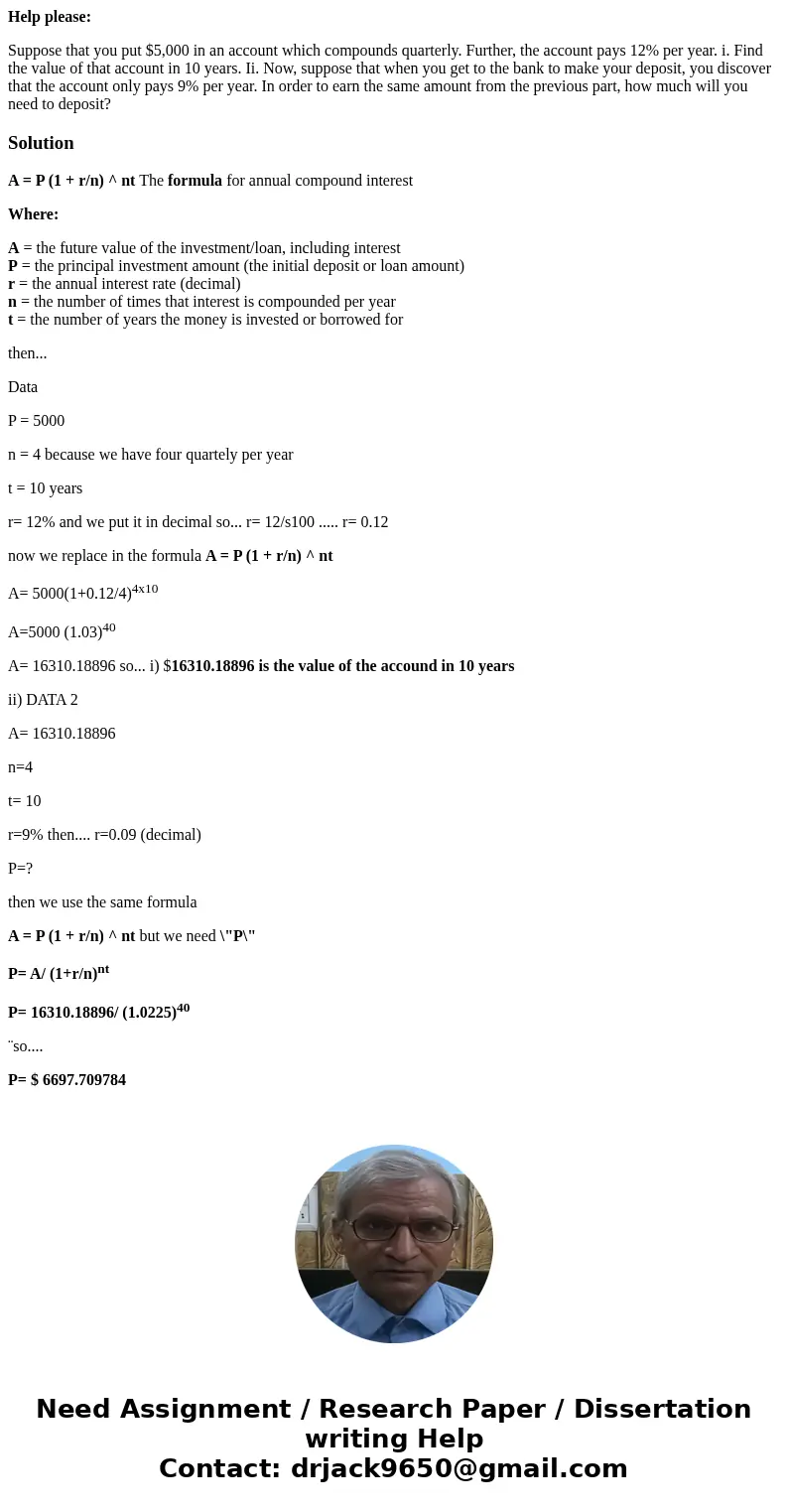Help please Suppose that you put 5000 in an account which co
Help please:
Suppose that you put $5,000 in an account which compounds quarterly. Further, the account pays 12% per year. i. Find the value of that account in 10 years. Ii. Now, suppose that when you get to the bank to make your deposit, you discover that the account only pays 9% per year. In order to earn the same amount from the previous part, how much will you need to deposit?Solution
A = P (1 + r/n) ^ nt The formula for annual compound interest
Where:
A = the future value of the investment/loan, including interest
P = the principal investment amount (the initial deposit or loan amount)
r = the annual interest rate (decimal)
n = the number of times that interest is compounded per year
t = the number of years the money is invested or borrowed for
then...
Data
P = 5000
n = 4 because we have four quartely per year
t = 10 years
r= 12% and we put it in decimal so... r= 12/s100 ..... r= 0.12
now we replace in the formula A = P (1 + r/n) ^ nt
A= 5000(1+0.12/4)4x10
A=5000 (1.03)40
A= 16310.18896 so... i) $16310.18896 is the value of the accound in 10 years
ii) DATA 2
A= 16310.18896
n=4
t= 10
r=9% then.... r=0.09 (decimal)
P=?
then we use the same formula
A = P (1 + r/n) ^ nt but we need \"P\"
P= A/ (1+r/n)nt
P= 16310.18896/ (1.0225)40
¨so....
P= $ 6697.709784

 Homework Sourse
Homework Sourse